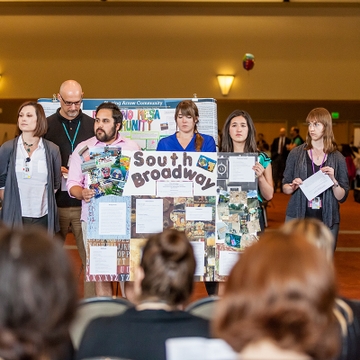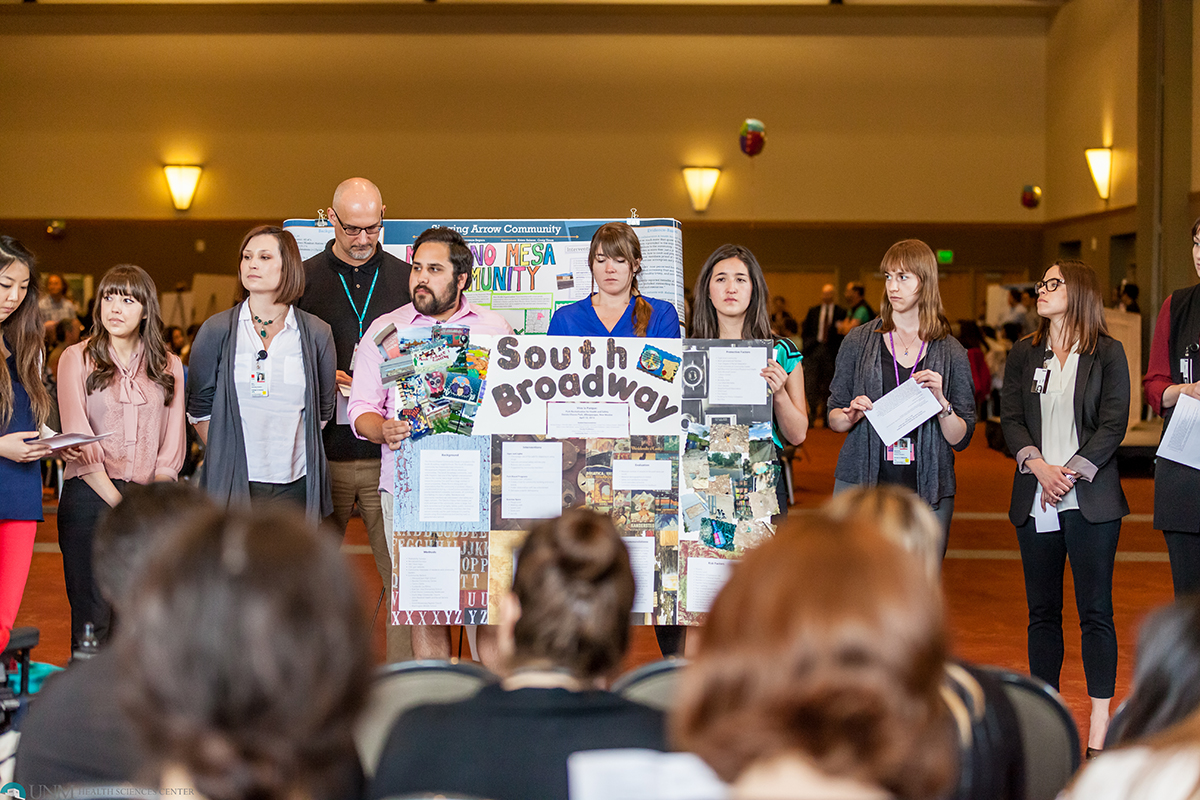Preparing for Disaster: UNM Hospital Participates in Region-Wide Emergency Training

HSC students present health care research to community groups
Hundreds of health-profession students at the University of New Mexico Health Sciences Center are helping communities throughout the state better understand their health needs and how to address them.
Under a new Community Engagement Curriculum launched earlier this year, student teams met regularly with 26 participating community centers located throughout Albuquerque and Bernalillo county and at the Pueblo of Isleta to develop unique profiles of community-health needs and potential health interventions.
The research teams, which included 350 students from the medical, nursing, pharmacy, occupational therapy, physical therapy, dental hygiene and physician assistant programs at UNM, presented their findings and recommendations to community leaders on Tuesday.
"This is a fantastic program and I am so glad to be here and take part in it today," Paul B. Roth, MD, UNM chancellor for health sciences, told the students and community members who gathered at a symposium at the UNM Student Union Building. "Team-based service learning is an exciting concept that allows the community to benefit from services while students are learning."
Beginning in February, students interviewed patients, families and other community members in an effort to highlight how so-called social determinants like poverty, limited education, poor access to healthy food and inadequate housing can impact underserved urban communities and affect health.
Albuquerque Mayor Richard Berry told the students Tuesday that their work helps governments achieve the greatest impact when using limited funds.
"So many of the good things that are coming out of our community are coming out of UNM and the Health Sciences Center," he said. "You are showing that there is a better way and we look forward to working with you more in the future."
Other speakers Tuesday included Isleta Lt. Gov. Isidor Abeita and Bernalillo County Commission Chair Art De La Cruz.
The Community Engagement Curriculum is part of the Health Sciences Center's Interprofessional Education Program (IPE), in which students from different health disciplines work in teams to provide comprehensive care or health care solutions. This year's program expanded the time-commitment for students.
"Our feedback from communities has been that they find their interactions with students to be a positive experience and they want the students there for longer periods of time," said Cynthia Arndell, MD, IPE coordinator for the Health Sciences Center. "They also want to be involved in projects where people could build on the information obtained."
The experience also provided a model for how health care disciplines will interact in the future, said Candace Hsu, Community Engagement Curriculum team member and a part-time faculty member for the UNM School of Medicine's Dental Hygiene Program.
"In health care, there have always been different disciplines working alongside each other. The challenge is being able to get these disciplines to work together and learn from each other," Hsu said. "UNM IPE has provided the starting point for future professionals to make learning and working with other disciplines in practice the standard of care."
The findings could be used by community leaders working to obtain funding for health care initiatives.
